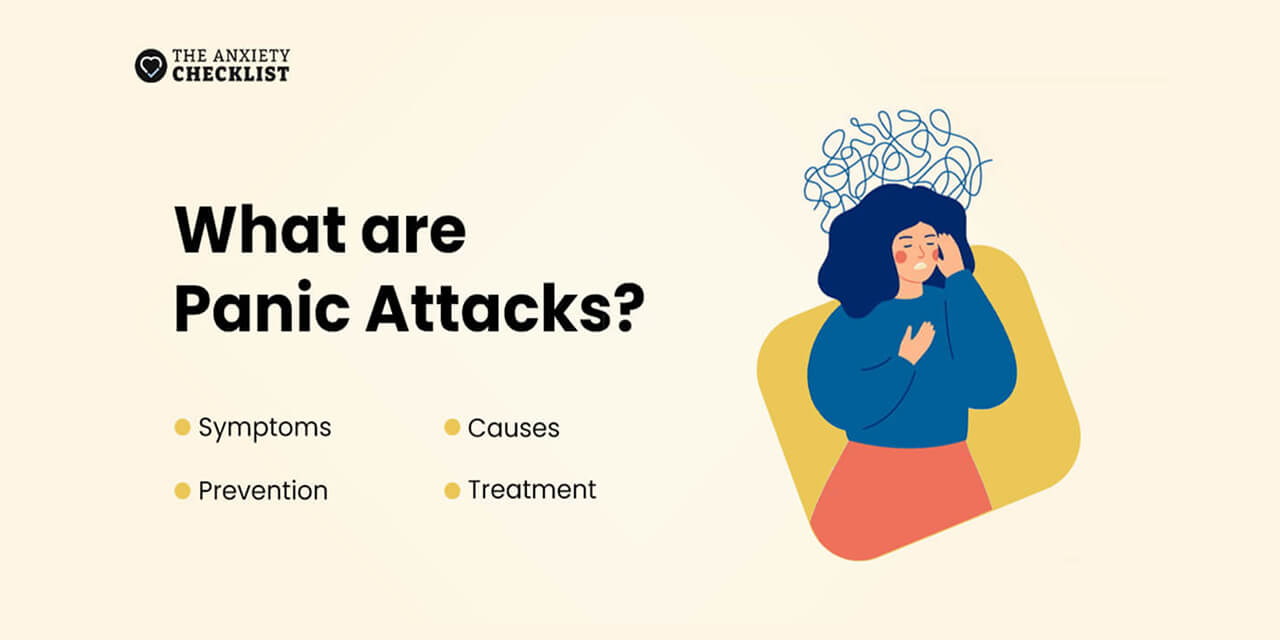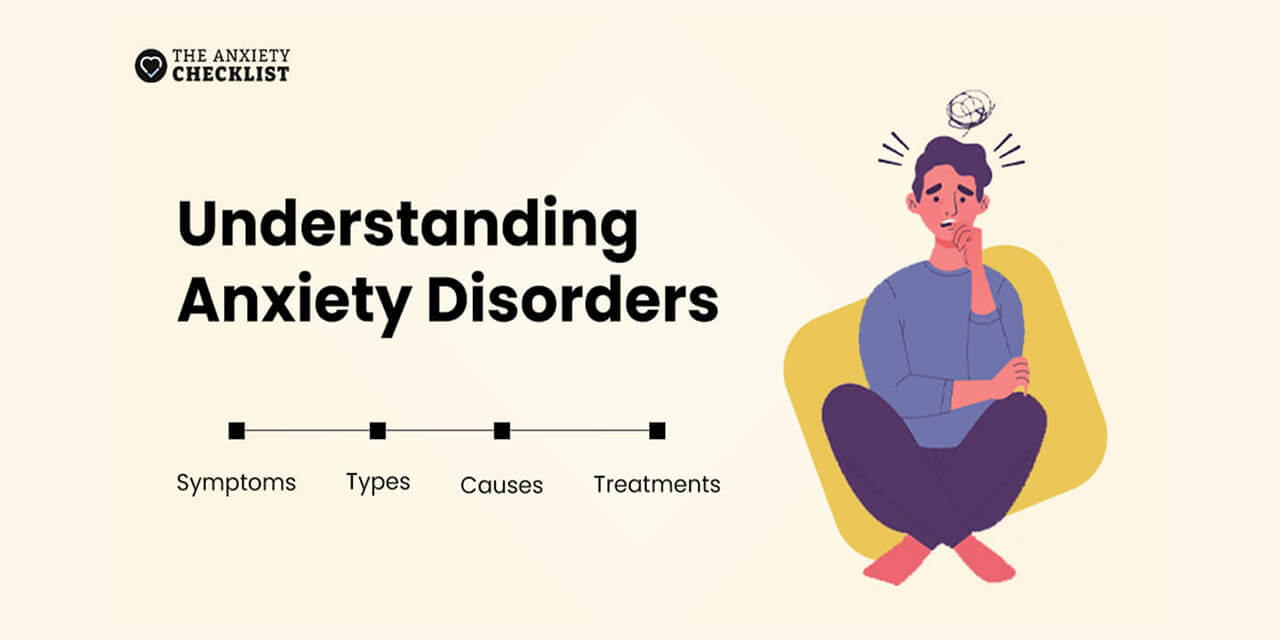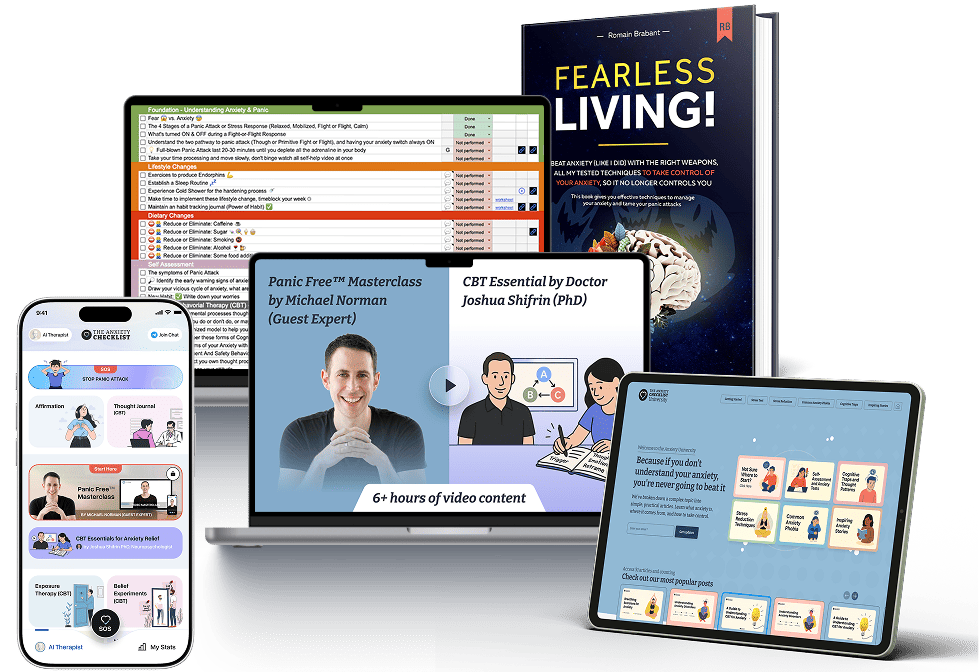What Is a Panic Attack?
Does This Mean I Have Panic Disorder?
When anxiety hits, do you know what to do next?
Learn how to calm your body, interrupt fear loops, and regain control step by step.
Effective Support Is Available
Moving Forward
Panic Attack vs Panic Disorder
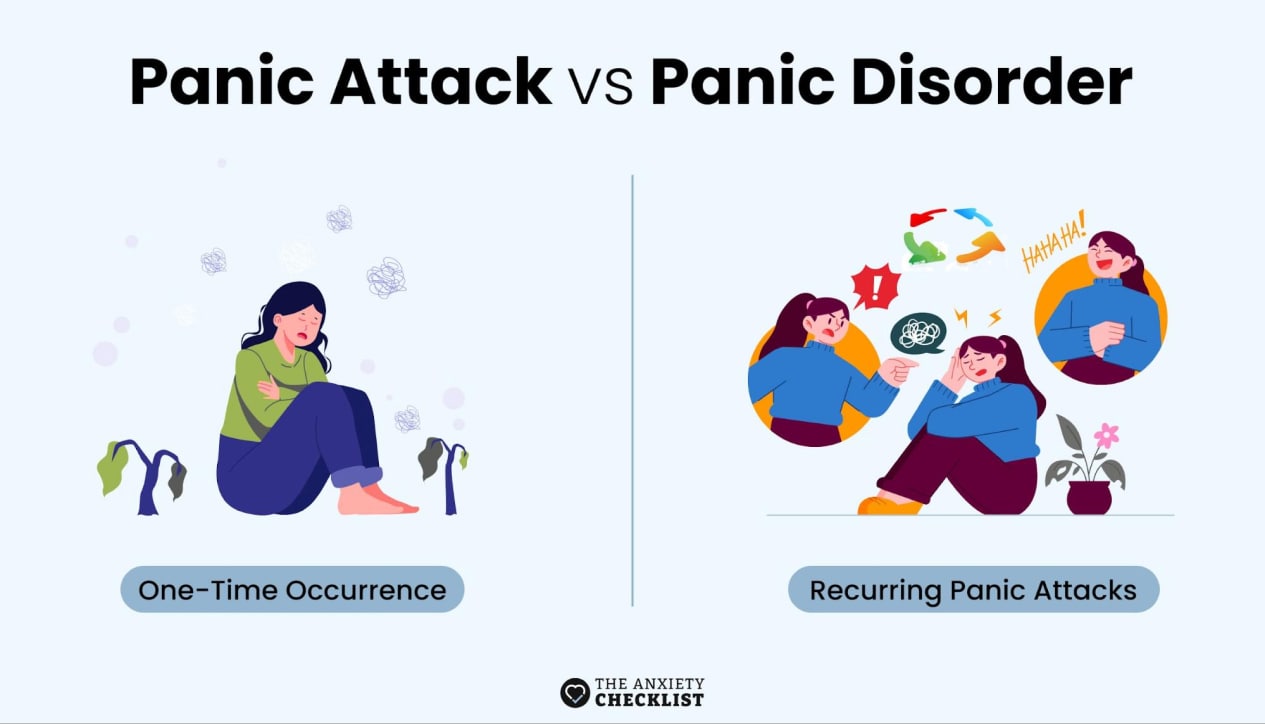
Symptoms of a Panic Attack: How to Identify One
- When you're having a panic attack, you may not even know what it is. To some people, it feels like having a heart attack.
- If you don't know the difference, you may end up panicking even more, which will worsen the symptoms.
- That's why it's important to understand and learn to identify the symptoms of a panic attack.
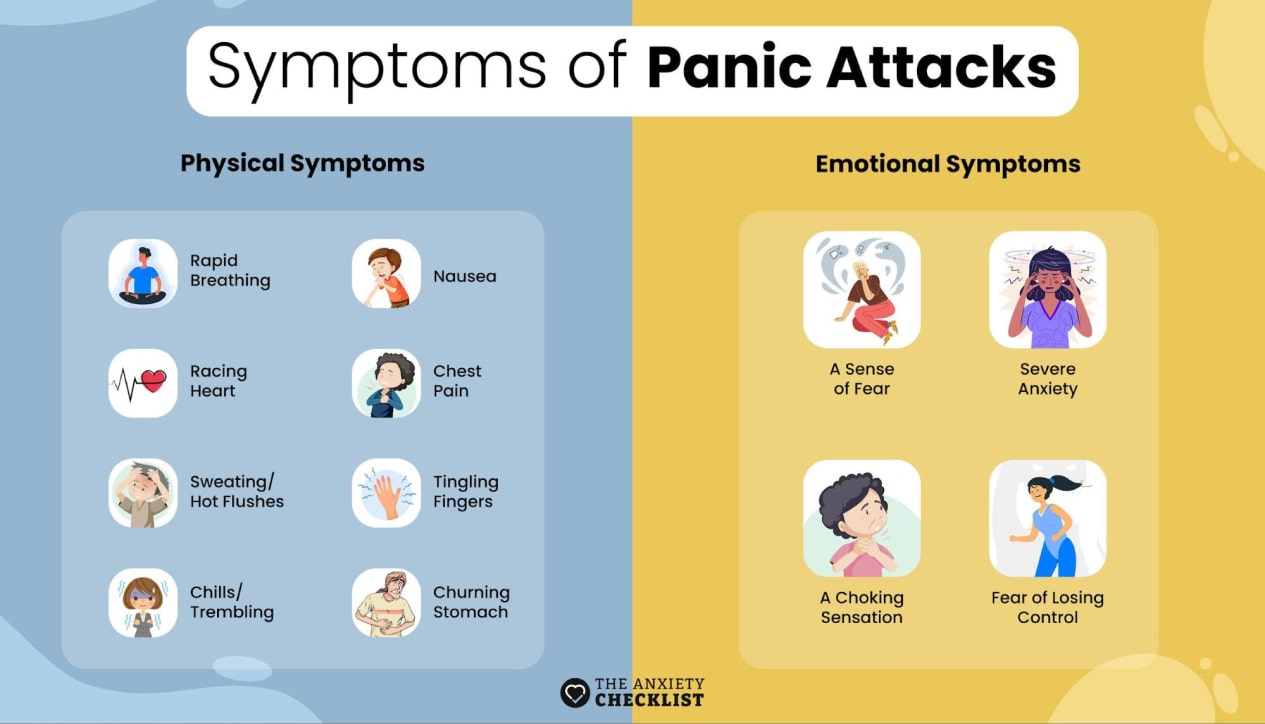
- For instance, if your grandparents struggled with anxiety, it might increase the likelihood of you facing similar challenges. Alternatively, if you endured abuse during childhood, the stress you faced might have become ingrained within you. This lingering stress could contribute to the anxiety you face as an adult.
- Our personality traits also have a huge role to play. Consider perfectionists—they're always aiming for high standards. But this continuous pursuit can cultivate an unwavering fear of not measuring up.
- Understanding these triggers is a personal journey. It's about recognizing why you feel the way you do. This awareness allows you to be more empathetic toward yourself as you navigate through these challenges.
Here's a comprehensive list
- Rapid breathing and racing heartbeats
- An overwhelming sense of fear
- Sweating or hot flushes
- Chills or trembling
- Weakness or dizziness
- Numbness or tingly sensations in hands and fingers
- A feeling of nausea or abdominal distress
- Difficulty in breathing
- Chest pain or constriction (in some cases)
- A feeling of intense anxiety
- A sense of losing control
- A choking sensation
- Derealization
- Depersonalization
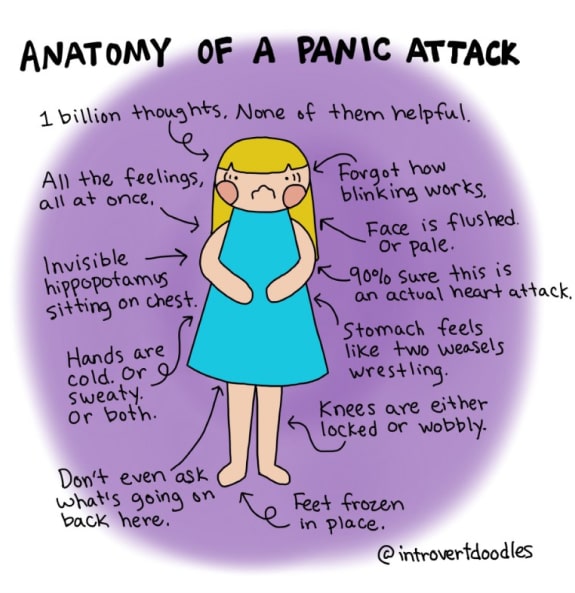
How to Identify a Panic Attack
Fear of the Fear: The Panic Cycle
Why is this important?
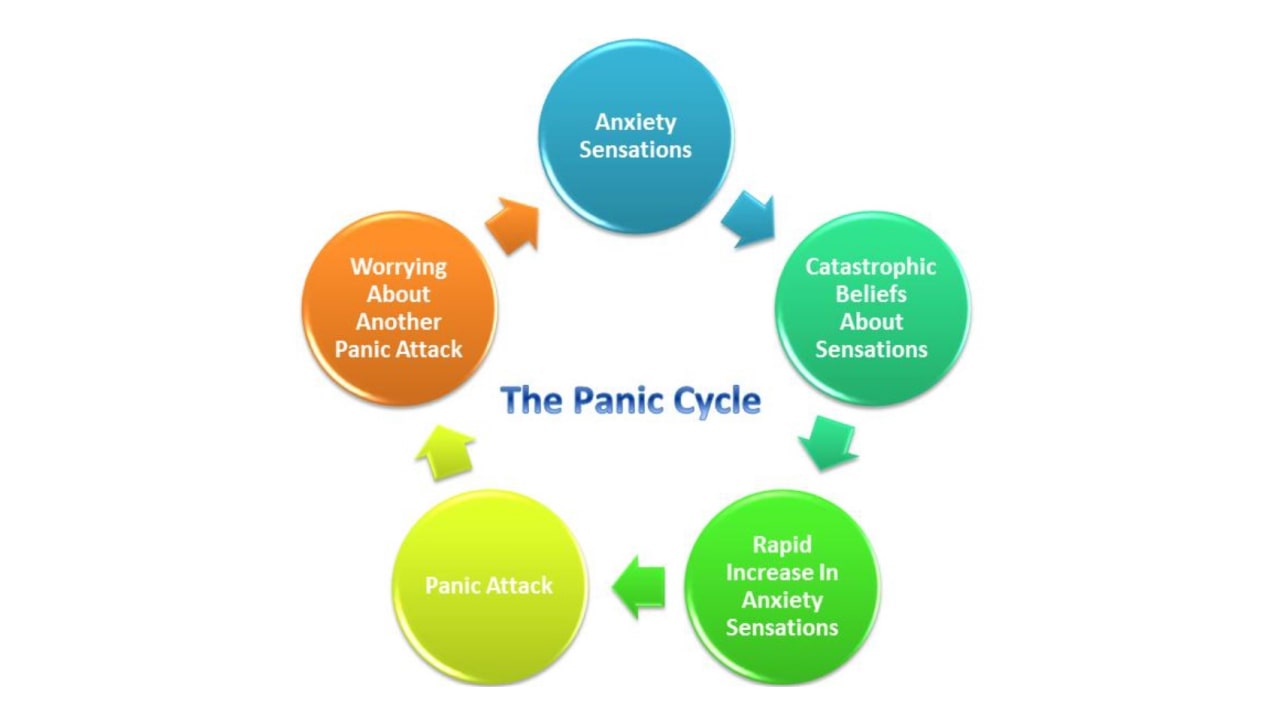
What Causes a Panic Attack?
- There is no conclusive study that confirms exactly what causes a panic attack. However, there are several factors that are known to contribute to a person’s likelihood of having panic attacks.

- For instance, if your grandparents struggled with anxiety, it might increase the likelihood of you facing similar challenges. Alternatively, if you endured abuse during childhood, the stress you faced might have become ingrained within you. This lingering stress could contribute to the anxiety you face as an adult.
- Our personality traits also have a huge role to play. Consider perfectionists—they're always aiming for high standards. But this continuous pursuit can cultivate an unwavering fear of not measuring up.
- Understanding these triggers is a personal journey. It's about recognizing why you feel the way you do. This awareness allows you to be more empathetic toward yourself as you navigate through these challenges.
Family History
- Genetics and family history are often the top contributing factors for panic attacks and panic disorders, according to anxiety statistics.
- Panic disorders often run in families and if you have a direct relative (parents, siblings, etc.) who has this condition, then you may be prone to it as well.
- Does this mean you will necessarily have a panic disorder if you have a family history of it?
Absolutely not.
- There is no conclusive study to prove that, nor is there a direct correlation, it's just one factor that may have an effect on your likelihood of developing a panic disorder.
Adverse Childhood Experiences (ACEs)
- These are negative or even traumatic experiences that occur during childhood (1-17 years of age) that leave a lasting emotional impact.
- Abuse, parental neglect, and parental substance use are among the top causes of such experiences. Check out the image below to learn some other causes of adverse childhood experiences.
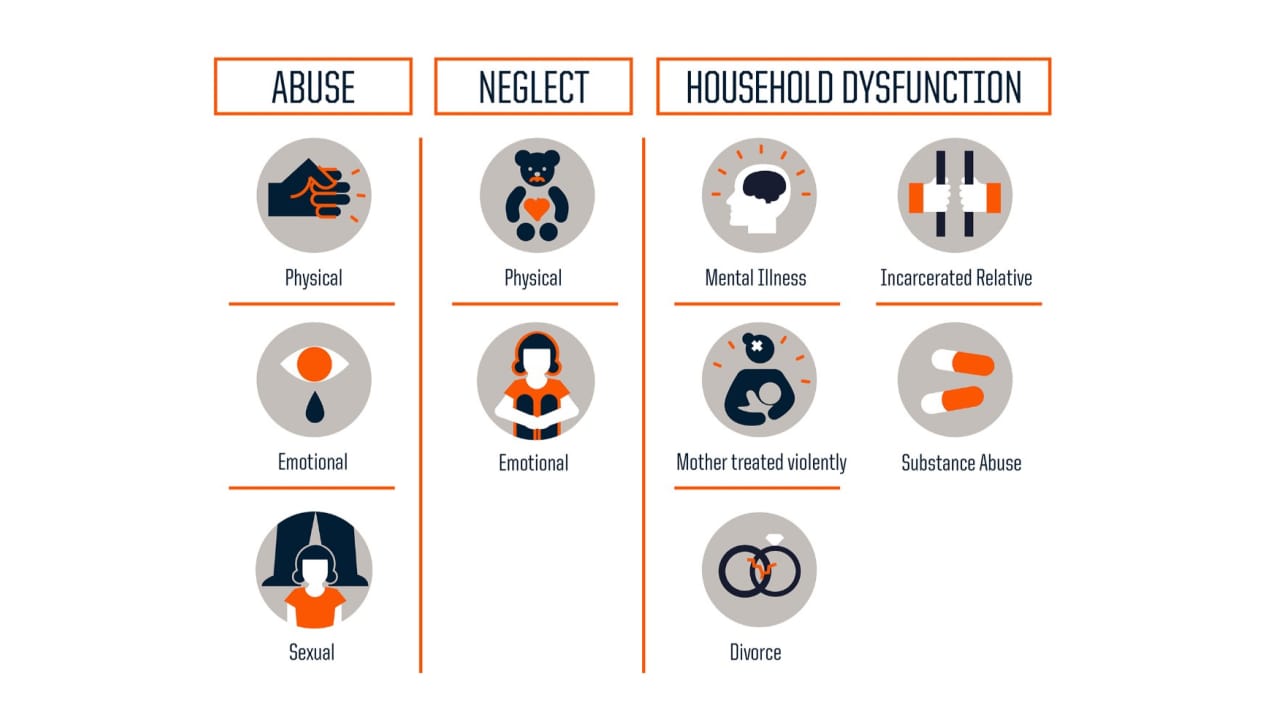
- If, as a child, you’ve grown up in a negative environment, you may develop conditions like depression or anxiety, which may lead to panic attacks.
- Depending on your specific trauma or experience, you may develop different triggers that cause panic attacks.
- For example, someone who was punished as a child by being locked in a room may develop an intense fear of being in tight spaces. Their panic attacks may be triggered in closed quarters or places where they feel claustrophobic.
- There can be any number of triggers for panic attacks, depending on your past trauma. Learn to identify your triggers to better understand and manage your panic disorder.
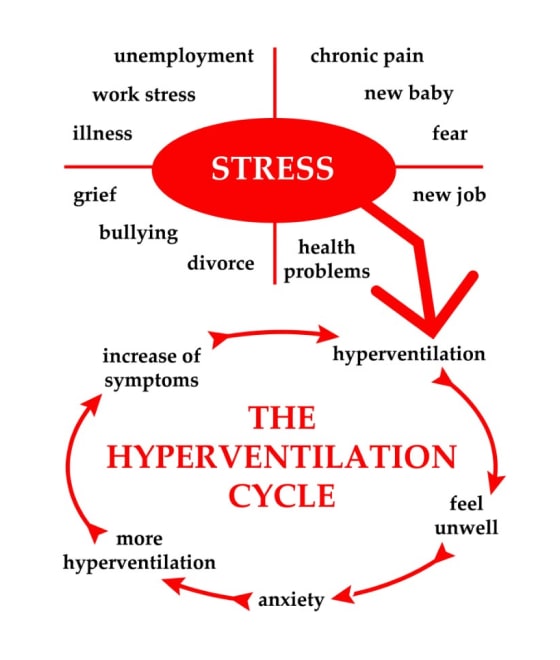
Chronic Stress
Sudden Acute Stress
Chronic Health Conditions
Current Life Circumstances
You may be prone to having a panic attack
- Constant pressure at work or school
- Unemployment or money problems
- Constant uncertainty about life situations
- Feelings of loneliness or isolation
- Negative experiences, such as abuse or discrimination
- Loss of a friend or family member
Drug and Medication
Complications Caused by Panic Attacks
Here are some complications that may cause
- Increased risk of suicide and frequent suicidal thoughts
- Development of various phobias
- Irrational behavior as a response to constant anxiety and fear
- Social anxiety or hesitance to go out and meet people
- Other mental health or psychiatric disorders
- Alcoholism or substance abuse problems
- Inability to keep a regular job
Prevention Measures: How to Reduce the Frequency and Likelihood of Panic Attacks
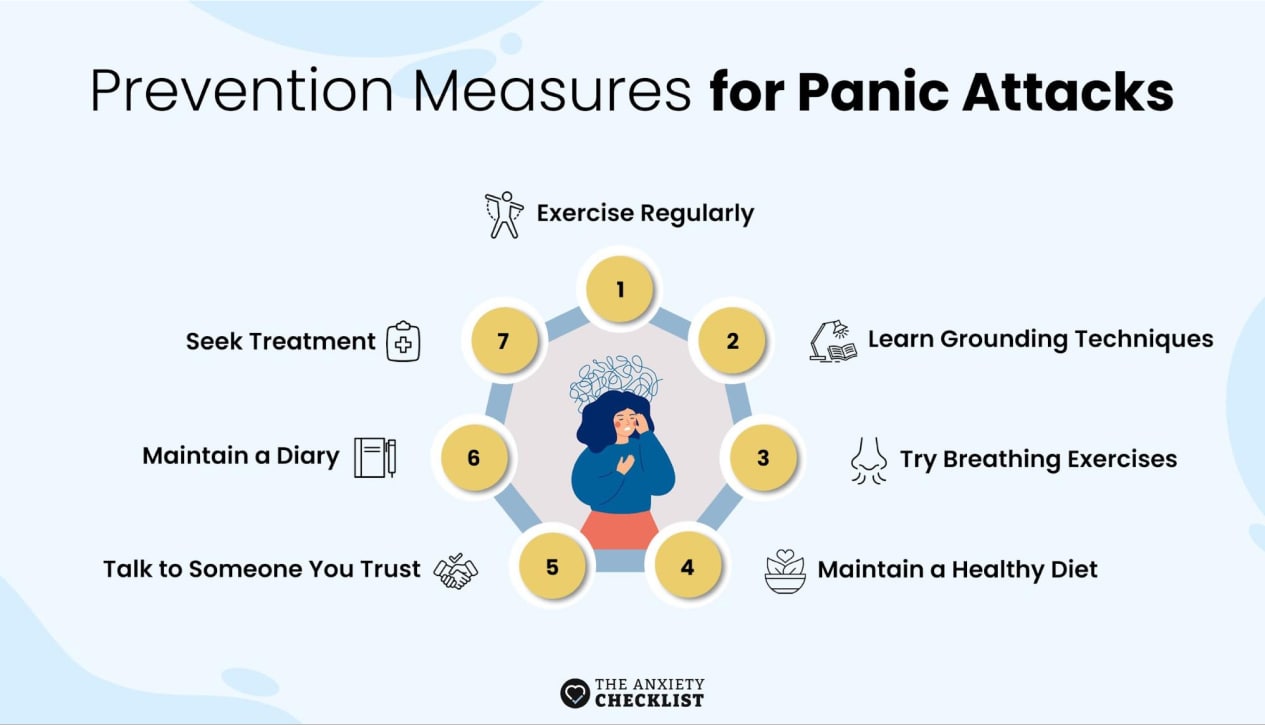
Exercise Regularly
- Daily exercise has a plethora of physical and mental health benefits as it releases certain neurochemicals that have positive health effects.
Learn Grounding Techniques
- Grounding exercises and meditation help people with anxiety focus on the physical environment around them and stay grounded in reality. This helps stop your brain from obsessing over made-up threatening scenarios that cause a panic attack.
Try Breathing Exercises
- Choose from among various available options and practice breathing exercises regularly. This will help you learn to relax and focus your attention on your breath rather than negative thought loops.
Maintain a Healthy Diet
- Have a well-balanced, healthy diet and reduce your intake of caffeine, alcohol, or other addictive substances.
Talk to Someone You Trust
- Talking to a trusted friend or loved one about your worries can help alleviate some of your concerns. It provides you an outlet to share your thoughts instead of letting them play obsessively in your mind.
Maintain a Diary
- Every time you have a panic attack write about your experience. This will help you identify your triggers and understand what typically causes your attacks, so you can be in more control of the situation in the future.
Seek Treatment
- Despite all the prevention measures, if you still get a panic attack, seek immediate help. A professional will put you on a treatment plan to reduce the frequency of attacks and ensure the situation doesn't get worse.
Our 93-point anxiety checklist covers a lot of techniques you can use to calm your mind when you have a panic attack. It has several tools to manage anxiety and self-care tips to take better control of the situation.
Diagnosis and Tests
To get further insights into your health, your healthcare provider may request
- Various blood tests, to rule out underlying conditions like Diabetes and Hyperthyroidism
- A complete and extensive physical examination
- A complete psychological assessment of your anxieties and fears, and the various stressors in your life
How is a Panic Disorder Diagnosed
Here’s the gist: you may have a panic disorder if
- You suffer from frequent panic attacks
- After an attack, you continually worry about having another attack or what it may mean for your health
- There are no underlying health conditions or substance abuse problems that are causing your panic attacks
When to Consider Professional Advice
If your symptoms are more psychological than physical, you should seek treatment if:
- You live in constant fear
- Your anxiety is disrupting your daily life
- You're extremely irritable
- You can't seem to concentrate on anything
- Your panic attacks last longer than 15 minutes
- You consistently have trouble sleeping
Medical Treatment Options
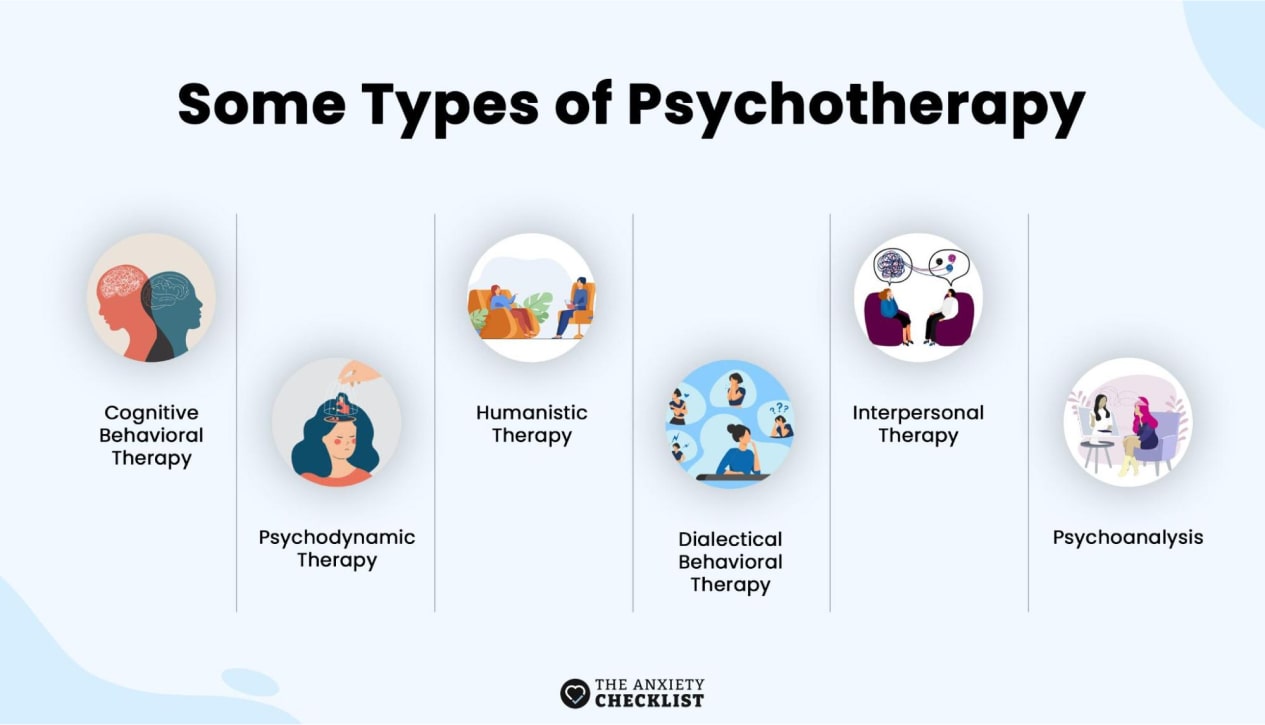
Here are some of the treatment options for panic attacks
Psychotherapy
- This includes talking therapies like Cognitive Behavioral Therapy (CBT) and Hypnotherapy that help you understand your symptoms and triggers. It helps you understand that there's no real threat and you can consciously relax your mind when having a panic attack. The image below lists some common types of psychotherapy.
Medications
- Depending on the severity of your condition, you may be put on various medications. These include antidepressants like Selective serotonin reuptake inhibitors (SSRIs) and anti-anxiety medications like alprazolam and lorazepam.
Where to Get Help
If your symptoms are more psychological than physical, you should seek treatment if:
- Your regular doctor or healthcare provider
- A psychologist
- By searching for specialized treatments near you on the FindTreatment.gov website if you're based in the US
Frequently Asked Questions
A panic attack is characterized by an overwhelming sense of fear and intense anxiety. It can also involve physical symptoms, such as rapid breathing, heart palpitations, numbness or tingling sensation in hands or fingers, etc.
No data available
The most important thing is to stay calm and let them know you're there for them, in whatever capacity they need you. Talk to them and let them know that they might be having a panic attack and that it won't last long.
If they're receptive to it, help them with a breathing exercise or a grounding exercise, but don't force your advice if they're not receptive. Just be there for them and let it pass.
If they're receptive to it, help them with a breathing exercise or a grounding exercise, but don't force your advice if they're not receptive. Just be there for them and let it pass.
No data available
No data available
Conclusion
Next Article
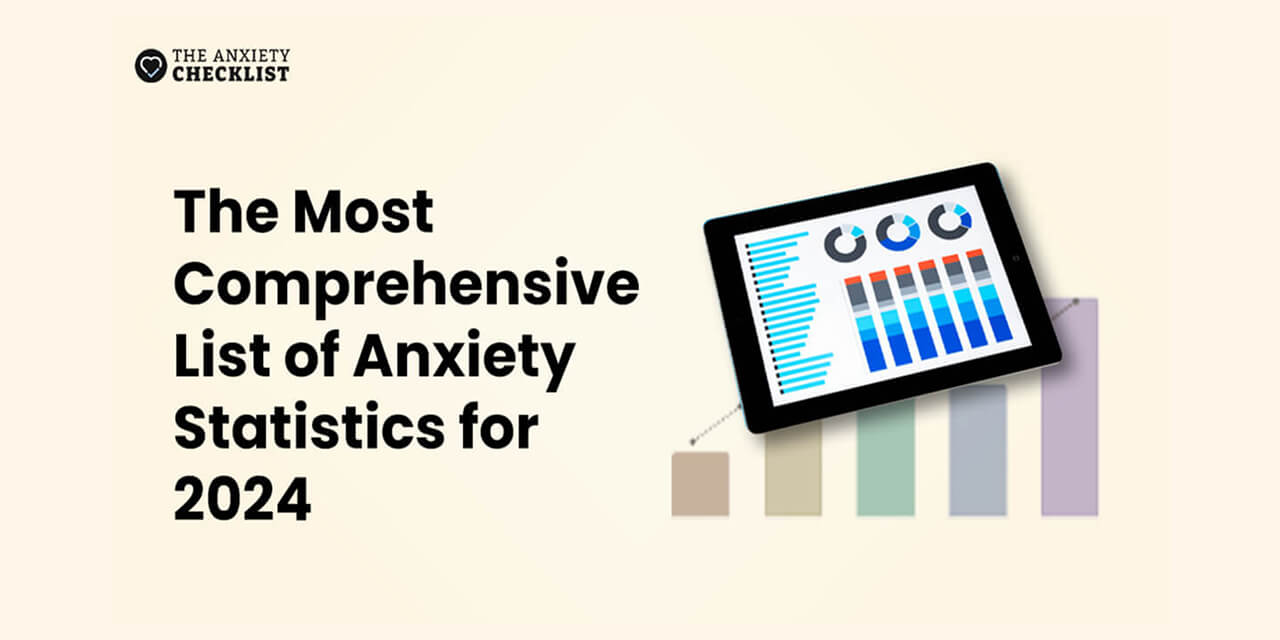
Comprehensive List of Anxiety Statistics
If you are in a crisis or any other person may be in danger - don't use this site. These resources can provide you with immediate help.


